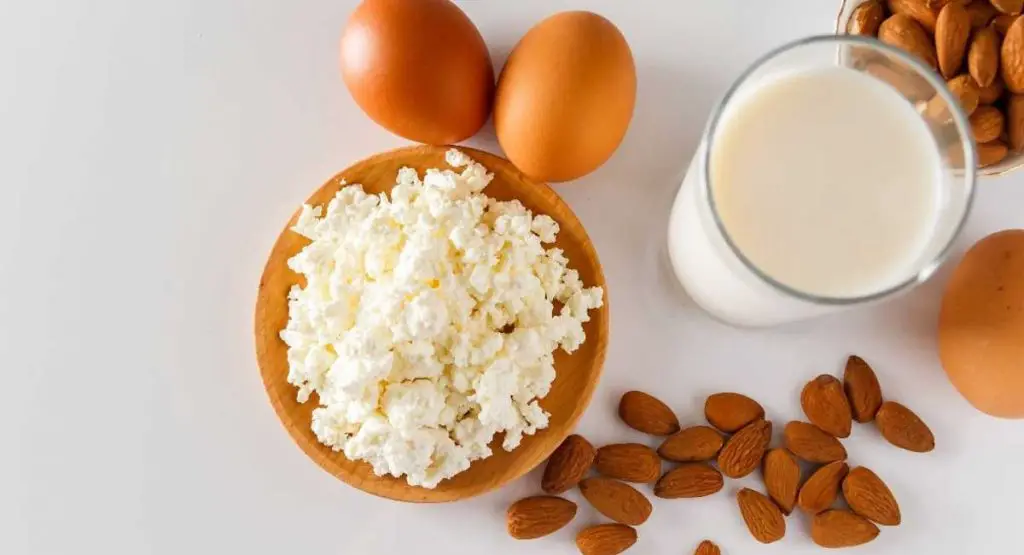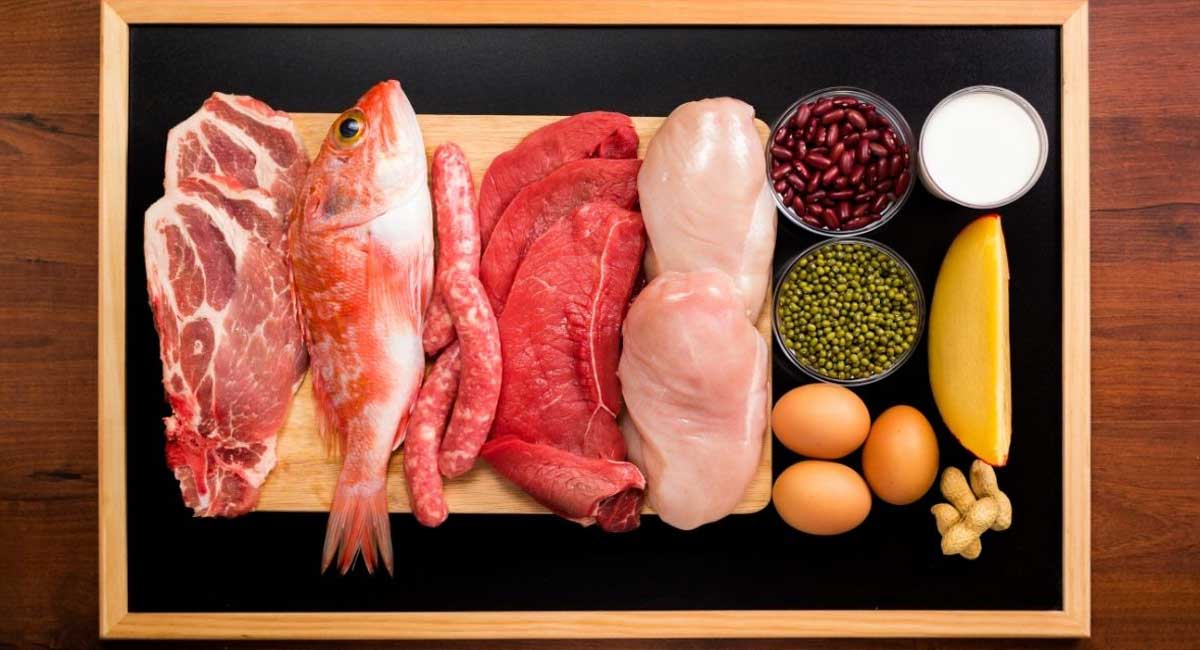Making a commitment to a new everyday diet or lifestyle can be rewarding, but you might also unintentionally remove essential nutrients. These common nutritional requirements are fulfilled by healthy nutritious daily intake.
The minerals, fats, vitamins, and amino acids that the body requires to function are referred to as essential nutrients. We can’t live without these nutrients, and no other components can replace them. The human body cannot or does not produce essential nutrients in sufficient quantities.
These nutrients should be obtained through food and are essential for preventing disease, proper development, and overall health. The essential nutrition for survival and basic health is primarily based on the body’s needs. For example, carbs, protein and fat, water, and vitamins are required for the body to perform basic tasks in life.
Proteins Are Essential for Good Health
Protein provides the base for the body. Protein can be found in every cell, from hair to the bone, and accounts for a startling 16% of the average person’s body weight. Protein is mainly used for development, wellbeing, and body maintenance.
Protein makes up all of your hormones, antibodies, and other vital substances. Proteins are composed of various amino acids. Whereas the body can produce some amino acids on its own, many essential amino acids should always be obtained from food. Your body needs a lot of amino acids to function properly!
Food like meat, fish, and eggs are excellent sources of essential amino acids, though protein can also be obtained from plants like nuts, beans, and some grains. The protein your body needs per day is determined by a number of factors, including your level of physical activity and age.
Fish and seafood are high in protein while still being low in fat. While salmon is slightly higher in fat than other types, it contains omega-3 fatty acids that can reduce joint pain and stiffness.
Note: The structure of hair is made up of tough proteins called keratin. When your protein intake is low, the hair starts to grow slower and weaker. Lean meats like chicken, fish, halibut, and tilapia are great protein foods to include in your diet. Low-fat mozzarella and cottage cheese, tofu, and quinoa are also great options to consider.

Carbohydrates as an Essential Nutrition for Survival
Carbohydrates are necessary for a healthy body and should be a part of your daily diet. They are the human body’s main source of energy. Carbs can provide 45–65% of total energy requirements. It’s best to eat whole-grain carbohydrates over refined grains. Carbohydrates are also an important source of energy during aerobic activity.
The digestive system converts carbohydrates into sugars, and the pancreas secretes insulin, a hormone that helps glucose move from the cells into the blood. Eating rice or a bowl of spaghetti or any other carbohydrate-rich food will not make you fat. What determines fat creation is generally how many carbs you consume and the quality.
That said, the type of carbohydrates in your diet is more important than the number of carbohydrates that you have in your diet.
Why Do We Need Vitamins?
Vitamins are components that human bodies need in order to function properly. We can’t make the majority of them, so we have to get them from our diets. Without vitamins, bodies would be unable to perform vital tasks such as trying to convert food into energy, developing and repairing bones, eyes, muscles, skin, blood, and hair.
Some vitamins collaborate with other nutrients. Vitamin C, for example, aids in the absorption of iron from plant foods, while vitamin D aids in the absorption of calcium. Vitamins, unlike carbohydrates, protein, and fat, do not provide energy, but they are necessary substances that help the body carry out its function properly.
13 vital vitamins help boost your immunity, strengthen your bones, cure wounds, improve your eyesight, and help you in acquiring energy from food. Without a sufficient vitamin intake, you might feel fatigued, become prone to infection and disease, and develop other severe symptoms that can harm your health and life.
Note: B6 and B12 help make red blood cells, which carry oxygen to all cells in the body, including those in the hair follicles and scalp. If you don’t get enough B vitamins, your cells can starve, causing your hair to fall out, slow down growth, and break. Pork is high in B vitamins, but if you don’t eat pork, oatmeal, beans, chicken, and low-fat dairy products, are also good sources.
Fats for the Human Body
Fat is an essential nutrient, and the body requires it for energy, vitamin absorption, and to protect the heart and brain health, like protein and carbohydrates. Introducing healthy fats into your diet can assist you in balancing your sugar levels, lowering your risk of heart disease and type 2 diabetes, and improving brain activity.
They are also effective anti-inflammatories and might even lower your chances of cancer, arthritis, and Alzheimer’s disease. Dietary fat has a significant impact on your cholesterol levels. Cholesterol is a wax-like, fatty constituent that your body requires to function properly. Remember that if you consume too much of cholesterol, it can be harmful to your health.
There are good and bad types of cholesterol, just like there are good and bad types of fat.
Note: Omega 3s are found in the cell membranes of the scalp and in the natural oils of the hair to help it stay hydrated. Getting enough of these essential fatty acids can help prevent a dry scalp and help keep your hair shiny and growing healthily.
Eating salmon and other fatty fish like sea bass or mackerel once a week will ensure you get a healthy dose of omega 3s. On the other hand, if you’re not a big fan of fish, add plant sources into your diets such as flaxseeds, nuts, soybeans, and canola oil.
The Role of Minerals
Minerals help to support the body. They’re necessary for many bodily functions, including the formation of healthy bones and teeth, the control of your metabolism, and the maintenance of proper hydration. Calcium, iron, and zinc are among the most common minerals. Calcium aids in nerve communication systems, blood pressure regulation, and muscular contraction and relaxation.
Iron promotes the formation of red blood cells and the production of hormones, whereas zinc promotes a healthy immune system and tissue repair. The majority of people get enough minerals by having a healthy diet. In some circumstances, your doctor may advise you to take mineral supplementation.
People with certain health issues or who take certain medications may require less of the minerals.
Water
You can stay alive for weeks without food, but only a few days without water. Water is essential for all of the systems of your body. It’s the main element from which our body is made and accounts for approximately 62% of your body makeup.
It’s important to stay hydrated in order to keep your body temperature stable. During aerobic exercise and in hot environments, your body releases heat through sweat.
Sweating keeps your body cool, but if you don’t replace the water you lose, your body temperature will increase. This is because dehydration causes your body to lose electrolytes and plasma.
Water is essential to nearly every organ in your body. Meeting your recommended daily intake will not only help you maintain your current state of wellbeing but might even improve your overall health. Remember to drink plenty of water if you’re sweating more than usual to prevent dehydration.
Note: Not sure how much water you should be drinking? You can use a water calculator, like this one, to determine approximately how much water you should be drinking each day based on your height and weight, age, gender, and activity level.
Conclusion
A diet rich in carbs, proteins, healthy fats, and vitamins is the best way to get much of these essential nutrients, and the important micronutrients, into your body to begin their work repairing and maintaining your health and bodily functions. The nutrients detailed in this guide make up the essential nutrition for survival to help you stay fit and live a long, healthy life.
Instead of counting fat grams, focus on a diet rich in fruits, veggies, grains, and beans, with multiple weekly portion sizes of fatty fish, moderate quantities of dairy, limited portions of red meat, and only occasional fried meals.
This means replacing fried chicken with grilled chicken, replacing some of your red meat with other protein sources such as chicken, fish, or beans, or using olive oil instead of butter.


